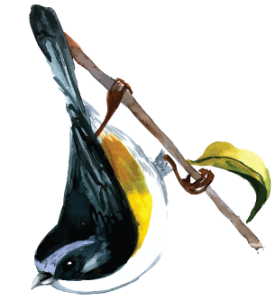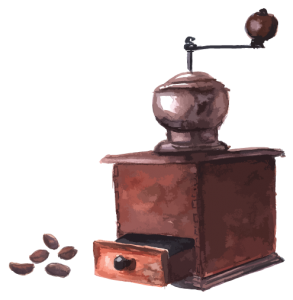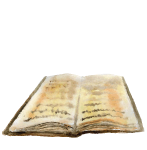Celilo Falls roared upstream from the Kaiser where I was born. Celilo or Wyam meant “echo of falling water” or “the sound of water upon the rocks” in several native languages. The name refers to a series of cascades and rapids over twelve miles long where basalt rock squeezed the Columbia like a tube of toothpaste. The river shrunk from mile-wide to a width of 140 feet, dropping more than 80 feet during summer months. The Yakama, Umatilla, and Nez Perce tribes fished this spot with long dip nets or spears on top of tall wooden platforms built along banks of the river, where an estimated 15 to 20 million salmon passed through the falls annually. For 15,000 years, Celilo Falls was a fertile exchange of river and man, of turbulent sound and beauty.
In 1957, before my third birthday, the Army Corp of Engineers completed the Dalles Dam, choking back the river and submerging Celilo entirely. No more roaring, crashing water upon rocks, no more salmon spiraling into the air and landing into dip nets. The falls were silenced by a massive wall of concrete. Somewhere north of the river, I was playing in a field flooded by March rains. I was naked and playing in the rain. And the great river was now neatly channeled, arranged like a flat serving tray.
I have no memory of ever seeing the falls. But when I look at black-and-white photos of Celilo, I have the same visceral response as if looking at a relative I once knew, as if my hand could trace its shape, familiar as my grandmother’s face. The sound seemed to etch a picture in my brain, like a sonogram that outlines the shape of an unborn child.
The song of Celilo was not a lullaby, though, but a sound that awakened all senses. Like a primal birth cry, it carried far. A rush of air, water, and mineral colliding, for me it was an entryway into another world, just as it was for the salmon who wildly leapt over the falls with their driving force to spawn.
My mother told me when I was a toddler, I liked to take off my clothes and enter the fields full of rainwater. Was it my desire to return to the fluid womb? I want to think that is what I was doing the day the Dalles Dam was completed, as some innocent form of protest, a tribute to the sound of water. But I don’t know that any of this is true; all I know is the memory of those falls keeps echoing in my ears.
Today I visited Cascade Falls, a tiny fall that flows through the ancient Redwood forests north of San Francisco. Tucked away in a darkened canyon, Cascade Falls looks like a long, slender woman wearing a fluid white gown. My friend Ron named Cascade Falls White Woman Dances in the Woods. What would he have named Celilo Falls if he had ever seen it — Fish That Leap over the Great Skirts of 1,000 Maidens? Or Flurry of Goddesses Who Stampede to Greet the Ocean?
In 1941, Woody Guthrie wrote a flurry of songs about the Columbia River and adjacent countryside, not to preserve its beauty but to promote the huge hydroelectric dams built along the river. The federal government hired him for one month when they faced powerful opposition from private utilities and hoped Guthrie’s folk songs would prompt more public support. Out of this came Guthrie’s famous song “Roll on Columbia”:
Green Douglas firs where the waters cut through
Down her wild mountains and canyons she flew
Canadian Northwest to the ocean so blue
Roll on Columbia, roll on
Roll on Columbia, roll on
Roll on Columbia, roll on
Your power is turning our darkness to dawn,
So roll on Columbia, roll on.
Guthrie was in need of work at the time, trying to feed his own wife and children. But he also felt hydroelectric power was a good thing because it provided common man with jobs in dam- and shipyard-building. His catchy folk tunes popularized the building of these monstrosities, which eventually wiped out Celilo Falls, changing the whole appearance and ecosystem of the river. If Guthrie, being the political protest singer that he was, came back from the grave now, he may be writing an entirely different set of songs. Yes, the dams created enough power to turn darkness to dawn, but Woody, what would you write now, knowing one of the greatest native fishing sites in North America was destroyed?
And Celilo, if you could speak, what would you say? That you remember the feel of millions of teeming fish jumping over your rapids? That you remember the weight of the earthen banks heavy with wooden planks? That you remember crushing boats as they were swept over your rocks, drowning explorers beneath your bubbling waters? That you remember the concrete wall that choked the Columbia, covering your face like an ashen sheet?
Columbia, what of you? Now that your waters have been dammed fourteen times and you still roll on — but only under the control of a human hand? That your original shape has been manicured like a cut lawn? That your dips and rapids have diminished like a low blue flame before it flickers out?
What would you say if you could speak, oh child tucked away warm in your mother’s womb? What would you say if you had not been delivered to the world inside a sterile hospital but instead born right on the riverbank and your body bathed in the rush of cold water? That a blessing of your spirit was sent to greet the mouth of the Pacific? That your birth cry was the roar of rapids and your hands were free to feel the rhythmic pulse of river current?
I say that would have been a great way to enter this world, fierce, alive, and on fire with all of creation.







